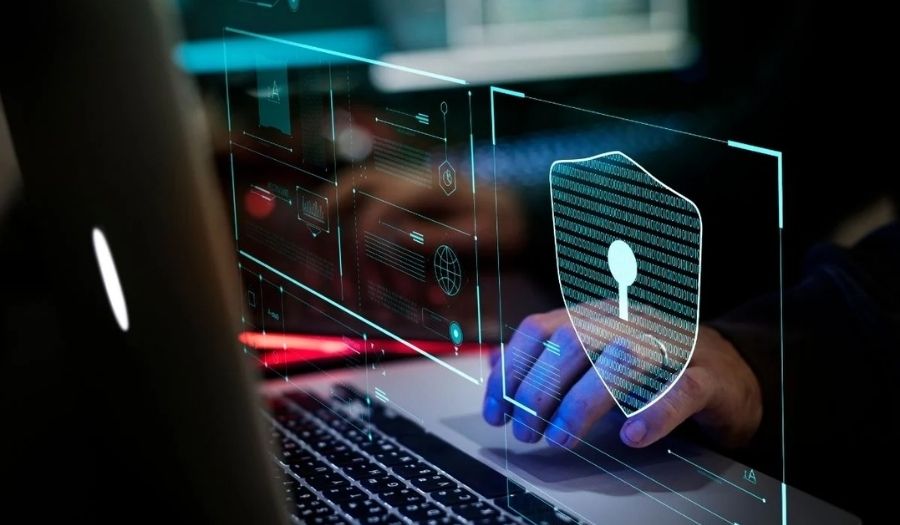
30-07-2024 | Noticias-en
On July 29, 2024, Resolution No. 710/2024 of the Ministry of Security was published in the Official Gazette of the Nation, creating the Artificial Intelligence Unit Applied to Security (“UIAAS”).
This new unit will operate within the scope of the Cybercrime and Cyber Affairs Directorate, which reports to the Cabinet of Advisors Unit of the Ministry of Security. The UIAAS will be headed by the Director of Cybercrime and Cyber Affairs and will include the participation of representatives of the Federal Police and Security Forces.
The mission of the UIAAS is the prevention, detection, investigation and prosecution of crime through the use of artificial intelligence. Its main functions include:
– Patrol social networks, applications and websites, as well as the “deep Internet” or “dark web”, to investigate crimes and detect security risks.
– Identify and compare images in physical or virtual format.
– Analyze security camera images in real time using facial recognition.
– Use machine learning algorithms to predict and prevent future crimes.
– Detect cyber threats before attacks occur, including malware and phishing.
– Process large volumes of data to create suspect profiles and establish links between different cases.
– Use drones for aerial surveillance and emergency response.
– Performing dangerous tasks, such as deactivating explosives, using robots.
– Improve communication and coordination between the Federal Police and Security Forces.
– Analyze social media activities to detect potential threats and anticipate unrest.
– Detect suspicious financial transactions that could indicate illegal activities.
The implementation of the UIAAS will be in accordance with the guidelines and directives established by the Ministry of Security Resolution No. 428/24.
It should be noted that, according to the Ministry of Security Resolution No. 428/24, during preventive work, police personnel must comply with the Personal Data Protection Law No. 25,326. Likewise, said resolution ignores that (i) it is strictly prohibited to handle sensitive data without judicial authorization, as well as to use publications by minors without due permission, and that (ii) if it is detected that the preventive activity involves a minor, it will be immediately suspended and the corresponding authorities will be notified, unless there is a risk to the life of the minor.
The scope and limits of the new UIASS’s actions, particularly when using technological tools to prevent criminal conduct, will have to be carefully analysed, taking into account potential problems regarding the right to privacy and the validity or legality of the actions of the security forces.
For more information and to access the full details of the regulation, please consult the following link: Resolution No. 710/2024.

02-08-2023 | Noticias-en
Artificial intelligence (AI) has experienced an exponential boom around the world, and Latin America is no exception. Over the past decade, the region has embraced emerging technology, and one area where it has left a significant mark is in the field of compliance auditing. The application of AI in audit processes is transforming the way companies, government institutions and non-profit organizations ensure compliance with regulations and rules.
The challenge of Compliance audits in Latin America
The regulatory landscape in Latin America has evolved rapidly in recent years. With a wide range of rules and regulations in various industries, ensuring compliance with all applicable laws has become a constant challenge for organizations. Traditional compliance audits involved extensive manual processes and a high degree of subjectivity in decision making, which often resulted in inefficiencies and costly errors, indicates the Economic Commission for Latin America and the Caribbean (ECLAC).
The advent of AI has revolutionized the way compliance audits are conducted in the region. Machine learning and natural language processing capabilities have allowed large organizations that have a high degree of complexity in their operations and usually have operations in much of the region, automate and optimize their audit processes.
Some of the key aspects in which AI has positively impacted are:
• Large-scale data analysis: AI can process large volumes of data in real time, allowing companies to more quickly and accurately identify and assess potential risks.
• Detection of abnormal patterns: AI algorithms can identify unusual patterns or atypical behavior in financial and operational data, helping to detect potential fraud or irregularities that might otherwise go unnoticed.
• Automation of repetitive tasks: AI enables the automation of routine tasks in the audit process, freeing up auditors to focus on more strategic analysis and informed decisions.
• Improved accuracy and reliability: AI removes much of the subjectivity in compliance assessments, providing more objective and reliable results.
• Agility in compliance: The implementation of AI in audits allows a faster response to regulatory changes and an agile adaptation to new regulations.
AI adoption in Latin America
Although the use of AI in compliance audits is constantly growing in Latin America, there are still challenges to face. Among them, the training of personnel to use these new tools and guarantee data protection and information security.
In this sense, the Chilean case is quite interesting. According to a study by the Universidad del Desarrollo in 2023, a certain sector of companies has achieved a deep adoption of AI in their teams and operations, and shows signs of generating value with it, which has increased by 42% since the year 2019. However, “it is necessary to keep in mind that this type of activity requires an adequate and robust regulatory framework, considering that the use of new technologies exposes the different risks that can be generated or increased in their development, for example, in terms of protection of personal data or matters related to cybersecurity”, explains Jaime Viveros, associate of the firm AZ de Chile.
Nonetheless, several countries in the region have taken significant steps to embrace AI in areas as diverse as enforcement and compliance. Peru, Chile, Argentina and Mexico, among others, are implementing public and private policies to promote innovation and facilitate the incorporation of technology into legal processes.
Even in this context, AI will not replace human auditors, but its incorporation into these processes will allow professionals to focus on strategic tasks, while technology is in charge of performing complex analyzes and monitoring compliance more effectively.

18-07-2023 | Noticias-en
Law 31814 was recently published in Peru, which promotes the use of artificial intelligence in favor of the economic and social development of the country (the “Law”), within the framework of the national process of digital transformation.
The Law sets forth the principles that should guide the actions of the State in promoting the use of artificial intelligence, and the participation of the private sector in this activity. Some of these principles are: Risk-based security standards, Multi-stakeholder approach, Internet Governance, Digital Society, Artificial Intelligence Privacy, etc.
Likewise, the Secretariat of Government and Digital Transformation of the Presidency of the Council of Ministers is appointed as the technical-regulatory authority responsible for directing, evaluating and supervising the use and promotion of the development of artificial intelligence and emerging technologies. Said secretariat will have the obligation to submit an annual report to Congress on the progress in the implementation of the National Digital Transformation Policy and the National Artificial Intelligence Strategy, and to immediately inform the Intelligence Commission of Congress, in the event that threats are identified. serious or breach of national cybersecurity.
Finally, the Law establishes a period of 90 business days for the Executive Branch to approve the corresponding Regulation.
Access the Law here: https://bit.ly/3pyPe9J
For more information contact:

Mario Pinatte | CPB Partner | mpinatte@cpb-abogados.com.pe




